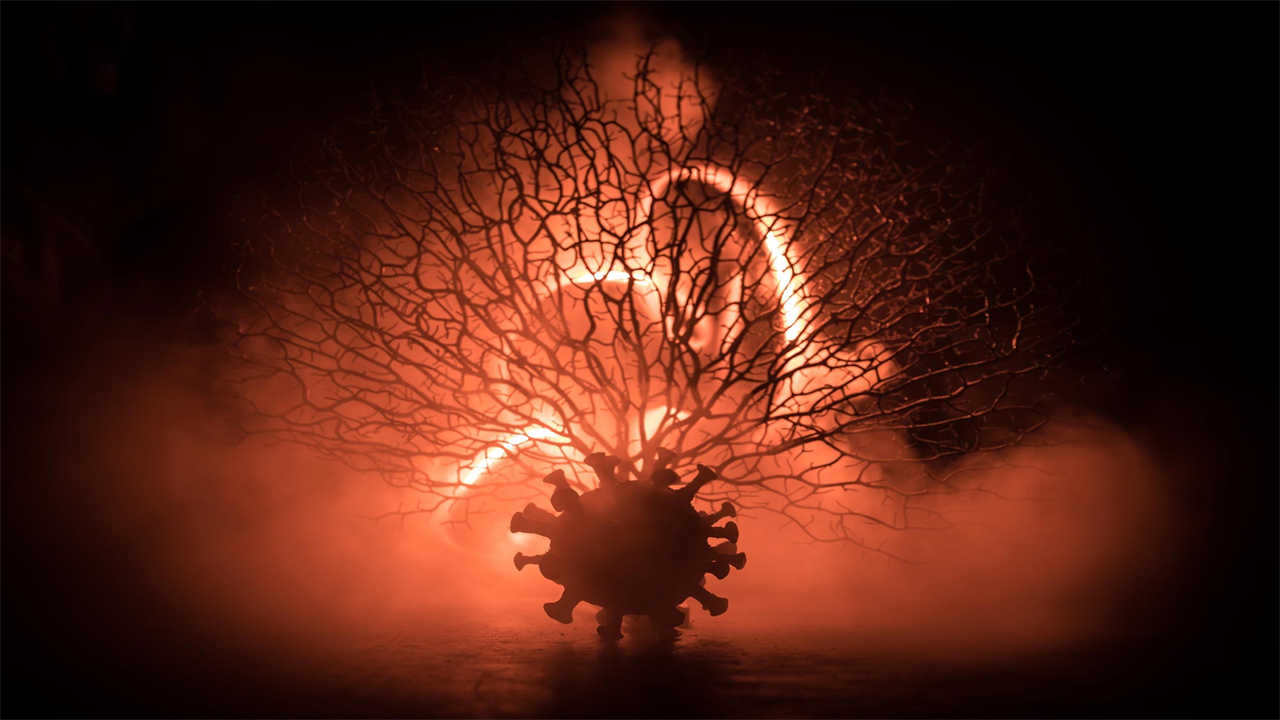Could Future COVID Variants Fully Dodge Our Immune System?
0 View
Share this Video
- Publish Date:
- 26 September, 2021
- Category:
- Covid
- Video License
- Standard License
- Imported From:
- Youtube
Tags

With each new variant of SARS-CoV-2 that emerges to trigger a wave of cases, a worrisome question also arises: Could the virus eventually arrive at a series of mutations that would allow it to fully fuel our immune response? to get around?
A new study, published in Nature, suggests it will be difficult for the virus to get there. Studying dozens of naturally occurring and lab-selected mutations, including those found in Delta and other affected variants, researchers found that a future SARS-CoV-2 variant must contain about 20 of the appropriate mutations to become fully resistant to the antibodies an average person generates in response to a coronavirus infection or vaccination.
But even if the virus delivers this genetic feat, it remains vulnerable to an enhanced set of antibodies: those created after natural infection and further enhanced by mRNA vaccines.
The findings suggest that, if properly stimulated, our immune system is capable of dealing with the worst the coronavirus may have to offer in the near future. “Immunity in people who battled COVID last year and later received mRNA vaccines is impressively broad,” said Paul Bieniasz, head of the Laboratory of Retrovirology at Rockefeller. “This tells us that while natural infection or the vaccines lead to immunity, they have come no close to depleting the human immune system’s ability to build defenses against this virus.”
Polymutant Viruses
Just as the coronavirus occurs in many variants, so do our antibodies. Therefore, even the Delta variant, the most contagious version of SARS-CoV-2 to date, doesn’t quite escape our immune response. It may be dodging some of the antibodies we produce, but not all of them. But Delta isn’t the last version of SARS-CoV-2 we’re about to see. The virus is still replicating at a rapid rate in large populations – new mutations are emerging and new variants are constantly being added.
Postdocs Fabian Schmidt and Yiska Weisblum wanted to identify which types of mutations give SARS-CoV-2 the edge over antibodies. For the study, they first created a safe replacement for the coronavirus by modifying another, harmless virus to express SARS-CoV-2 spike protein on its surface. As the fake coronaviruses replicated, some picked up mutations because they made mistakes by copying themselves. The team then bathed the fake coronaviruses in plasma samples from people who had recovered from COVID, and selected the mutants that escaped neutralization by antibodies. A few rounds of this and the team found many mutations that were in the same locations as those that occur naturally in SARS-CoV-2 variants, including those in Delta or other variants of concern.
The researchers then created a “polymutant” virus: a fake coronavirus with a spike protein containing 20 of the worst of those mutations at a time. This polymutant showed almost complete resistance to antibodies generated by individuals infected with or vaccinated against SARS-CoV-2. “So it’s possible for the virus to evolve and evade the majority of our antibodies, but the genetic barrier for that is quite high,” Bieniasz says.
Extra immunity
Findings from a group of people suggest that our immune systems will win the race against the mutating coronavirus in the long run. People who have had both natural infection and vaccination produce remarkably effective antibodies. Previously, the Rockefeller team made up of Michel Nussenzweig, Paul Bieniasz and Theodora Hatziioannou, an associate professor of research at Rockefeller, found that after the infection clears, antibodies continue to develop for several months, allowing them to better bind to the spike protein. Receiving mRNA vaccines further amplifies those antibodies, increasing their number and improving their ability to deal with many of the variants simply by binding ever more tightly to the original sequence.
In the present study, plasma from those who were both infected and vaccinated neutralized the polymutant peak. It also neutralized the six SARS-CoV-2 variants tested, as well as the original SARS coronavirus and SARS-like viruses found in bats and pangolins. “Antibodies from this group of people are incredibly powerful and flexible,” said Hatziioannou, who co-led the study. “It is likely that they will provide protection against any SARS-CoV-2 variants in the future and possibly against future coronavirus pandemics.”
More studies could show whether booster shots could lead to a similar improvement in antibodies in vaccinated people who have never been infected with the corona virus.
Reference: “High genetic barrier to SARS-CoV-2 polyclonal neutralizing antibody escape” by Fabian Schmidt, Yiska Weisblum, Magdalena Rutkowska, Daniel Poston, Justin Da Silva, Fengwen Zhang, Eva Bednarski, Alice Cho, Dennis J. Schaefer-Babajew, Christian Gaebler, Marina Caskey, Michel C. Nussenzweig, Theodora Hatziioannou and Paul D. Bieniasz, September 20, 2021, Nature.
DOI: 10.1038/s41586-021-04005-0










